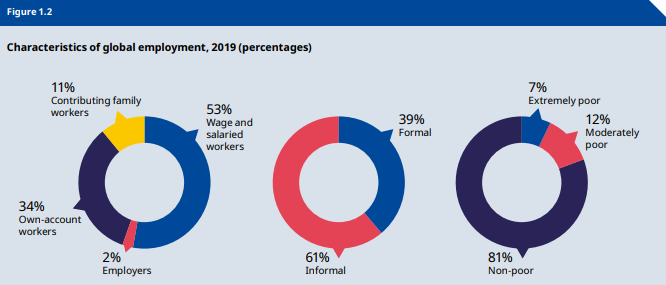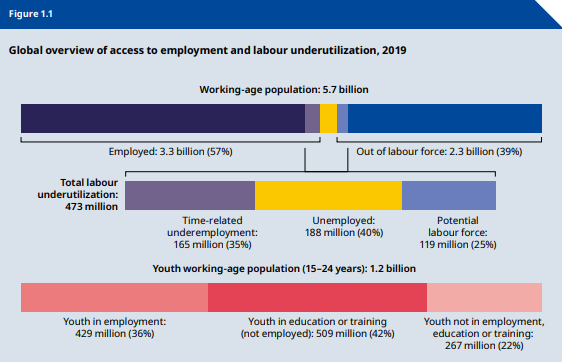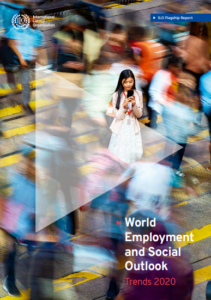The International Labour Organization (ILO) published its new report “World Employment and Social Outlook: Trends 2020” focusing on the global unemployment and the insufficient paid work, which impacts almost half a billion people worldwide. Specifically, ILO’s report highlights that due to lack of decent work, people are struggling to build a better future through their career.
Although paid work plays a major role in material well-being, economic security, equality of opportunities and human development, the report notes that a large amount of the 57.4% that are employed, do not have quality jobs. In fact, very often, any type of employment is taken up to meet basic needs, especially in rural areas.

In this respect, it is worrying that 45%t of employed persons worldwide are still in such forms of employment. Occupations associated with low-productivity agricultural activities or very little income are still widespread in low- and lower-middleincome countries, despite significant improvements over the past 25 years.
Furthermore,”World Employment and Social Outlook: Trends 2020 (WESO)” shows that during 2020, the unemployment is estimated to increase by around 2.5 million.
For millions of ordinary people, it’s increasingly difficult to build better lives through work. Persisting and substantial work-related inequalities and exclusion are preventing them from finding decent work and better futures. That’s an extremely serious finding that has profound and worrying implications for social cohesion.
…ILO Director-General Guy Ryder said.
According to the report, the global number of the unemployed people stands at 188 million, while 165 million people not having enough paid work and 120 million have given up either looking for work or due to their lack of access to the labor market. Meaning that insufficient paid work has a negative impact upon more than 470 million people in total.

Moreover, during 2019 the global unemployment rate stood at 5.4% and is estimated to remain at the same rate in the two following years. At the same time, the combined rate of labor underutilization is projected to settled at just above 13%. “Labor market conditions are contributing to this erosion of social cohesion in many of our societies” Guy Ryder continued.
Additionally, a staggering 267 million young people (aged 15-24) are not in employment, education or training, and many more endure substandard working conditions.
Through the report, WESO further recommends that the type of economic growth needs to shift to encourage higher-value added activities, through structural transformation, technological upgrading and diversification.
Labour underutilization and poor-quality jobs mean our economies and societies are missing out on the potential benefits of a huge pool of human talent. We will only find a sustainable, inclusive path of development if we tackle these kinds of labour market inequalities and gaps in access to decent work.
…the report’s lead author, Stefan Kühn, concluded.
Explore more herebelow:































































